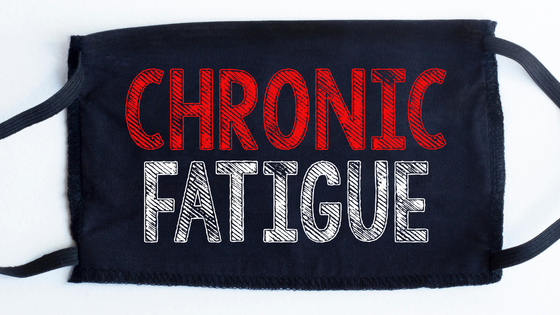take the quiz!
Wondering if Your Symptoms Could Be a Sign of
take the quiz! TAKE THE QUIZ! TAKE THE QUIZ! TAKE THE QUIZ! TAKE THE QUIZ! TAKE THE QUIZ! TAKE THE QUIZ! TAKE THE QUIZ! TAKE THE QUIZ! TAKE THE QUIZ! TAKE THE QUIZ! TAKE THE QUIZ! TAKE THE QUIZ! TAKE THE QUIZ! TAKE THE QUIZ! TAKE THE QUIZ! TAKE THE QUIZ! TAKE THE QUIZ! TAKE THE QUIZ! TAKE THE QUIZ! TAKE THE QUIZ!
Discover if your health concerns might be linked to autoimmune disease by taking our quick and insightful "Could My Symptoms Be Autoimmune Disease Self-Assessment" quiz. Don't wait to unlock valuable insights into your well-being – start the quiz now and take the first step towards understanding your body better.
HEY THERE! I'M JAMIE NICOLE
HEY THERE! I'M JAMIE NICOLE
HEY THERE! I'M JAMIE NICOLE
HEY THERE! I'M JAMIE NICOLE
HEY THERE! I'M JAMIE NICOLE
HEY THERE! I'M JAMIE NICOLE
But hold on, there's more to me than just those titles! I'm a fitness enthusiast, an avid runner, a champion of self-care, a health foodie, and an empty-nesting mom of two incredible souls. You see, I firmly believe that you are not defined by your autoimmune diagnosis, just as I'm not defined by any single label.
I know from firsthand experience what it is like to suffer from unexplained symptoms. I understand the depths of depression and fear that can engulf your days, making it a daunting task just to get through them. The sense of isolation and anxiety that accompanies the belief that no one truly comprehends your struggles can be overwhelming.
Through my personal journey battling autoimmune disease, I've crafted a program aimed at helping you manage the fatigue, brain fog, and joint pain that often accompany these conditions. This program focuses on restoration through dietary and lifestyle adjustments, with the goal of bringing vitality back into your life.
If you're tired of feeling sick and tired, I'm here to be your guide on the path to reclaiming your health. Together, we'll embark on a journey of restoration, so you can regain the energy and vitality needed to live your best life!
I'm an Autoimmune Health Coach, Fitness Instructor, Life Coach, Health Equity Advocate and Your Ultimate
hype girl.
Everyone Has a Story. Here is mine!
book a discovery call
Revel in restoration with my chosen favorites.
FAVORITE THINGS
Dive into the passions that resonate with me – a Health Coach, Fitness Instructor, Life Coach, and Health Equity Advocate! Explore my trusted favorites, ranging from vital health and fitness essentials to must-have beauty products, cutting-edge technology, and educational resources. Take a peek into the elements I consistently turn to in my wonderfully hectic life, showcasing my ongoing journey of exploration and restoration.
Take the quiz
Are You Ready to Crack the code of those cryptic symptoms?
Unravel the mystery behind those puzzling symptoms and gain access to crucial insights about your health. Take the "Could My Symptoms Be Autoimmune Disease Self-Assessment" quiz and initiate the first step towards understanding your body on a deeper level.
Let's Crack the CODE
SARAH B.
AUTOIMMUNE PROGRAM
My main goal when I began working with Jamie was to work through my fatigue and Hashimoto’s Thyroiditis symptoms. I wasn’t finding any hope with doctors and I needed help navigating through other options. What helped me the most while working with Jamie in our 1-on-1 sessions was learning how to be more proactive in working with my doctor by taking control of my care, getting proper lab tests, being prepared with questions to ask my doctor and keeping all of my records.
"Jamie’s support was helpful and it was real."
ISABEL R.
Autoimmune Program
"Before I started working with Jamie, I spent years trying to figure out what would work for me and failed many times on my own. Right before I started seeing her, I was feeling hopeless and had given up on myself because nothing seemed to work for me. Once I started sessions with Jamie, I've not only improved, but I also feel a lot more empowered in my journey to get better."
"Jamie always made me feel supported and empowered during my journey."
MARIA M.
AUTOIMMUNE PROGRAM
"Jamie is extremely knowledgeable and shares that knowledge in a productive and encouraging way. I was really amazed at the depth of her research, and she constantly came back with the information I was having a hard time finding or was confused about. She is encouraging and realistic which I like too because I am not perfect, but can continue to make good changes in my life and not feel like I have to be perfect."
"Jamie made me feel less alone because she too has autoimmune disease and knows firsthand how it feels."
YVETTE H.
DETOX PROGRAM
"Working with Jamie was a very positive experience. She is a committed professional who truly cares about her clients. I have recommended her to everyone in my circle."
"Working with Jamie was a very positive experience."
RAQUEL O.
DETOX PROGRAM
"My favorite part of the program was trying new foods and seeing results. As a result of the [detox] program, lost weight and increased my self-esteem, mood, and energy. Understanding how food can affect my mood and energy was eye-opening. I can finally fit back into some of my pants that had gotten a little too tight."
"I would recommend it to people looking to live a maintainable healthy lifestyle, eat better, lose weight, and feel better about themselves."
BLOG
HEAL
the
Here, I'll be your guide on the path to wellness. Join me as I share my personal journey and discoveries in real-time. Explore free bite-sized lessons on optimizing your health. Discover insights into setting achievable health goals and maintaining balance. I'll keep you updated on my current health passions, as well as the latest tips and tricks for embracing a healthier lifestyle. Plus, peek behind the curtain into my unique, wellness-focused life.
Think of It as Your Cozy Wellness Haven, Overflowing with Knowledge and Charm
Coach
DOWNLOAD
You're Not Hungry, You're Triggered: How to Use Intuitive Eating to Break Free From Your Emotional Relationship with Food
Free Download
DOWNLOAD
How to Prepare for a Doctor's Appointment: Tips for Preparing for and Questions to Ask Before and During Your First Appointment with a Practitioner
Free Download
DOWNLOAD
The Autoimmune HEALing Starter Guide: A 6-Step Guide to Learning More About Your New Autoimmune Diagnosis
Free Download
resources to help guide you on your journey to restoration
Freebies
RESTORATION
RESTORATION
RESTORATION
RESTORATION
RESTORATION
Let's Embark on a Journey of RESTORATION Together!
Get ready for a dose of wellness restoration in your inbox. Say goodbye to the clutter and hello to genuine encouragement, thought-provoking questions, transformative challenges, and expert strategies that will help you achieve your health goals. Ready to embark on this journey of restoration?
RESTORATION
RESTORATION
RESTORATION
RESTORATION
RESTORATION
RESTORATION
RESTORATION
RESTORATION
RESTORATION
RESTORATION
RESTORATION
RESTORATION
RESTORATION
Let's GOOOOO!
Thank you!
Your message has been delivered
Embark upon an experience that transcends the ordinary – a vacation you won't need a vacation from, where you'll leave feeling better than when you came.
JOYFUL ACTIVE AIP RETREAT
Journey to Joy: Unwind and Restore at our Autoimmune Holiday Retreat - Your Joyful Active AIP Journey Awaits!
learn more


